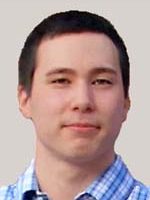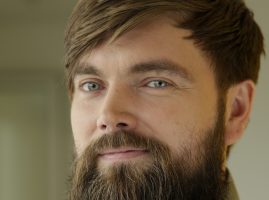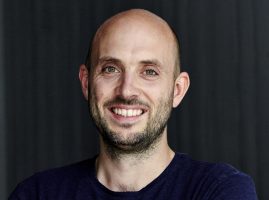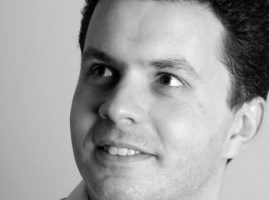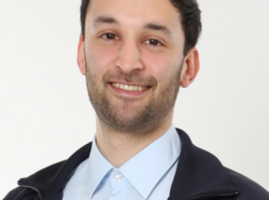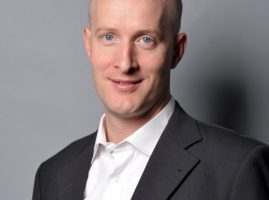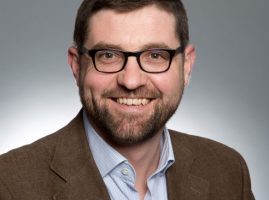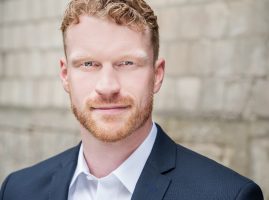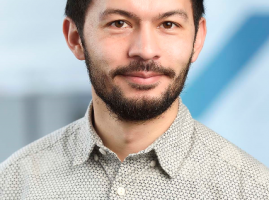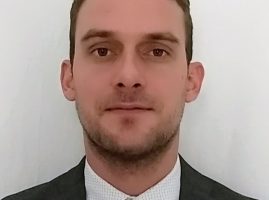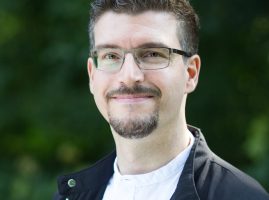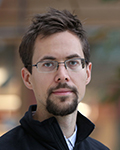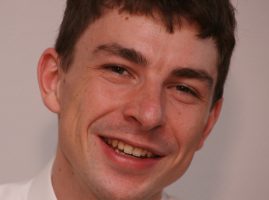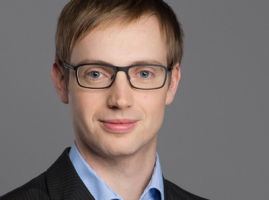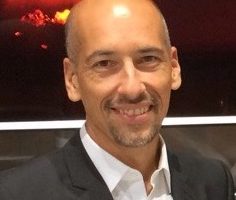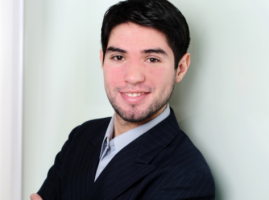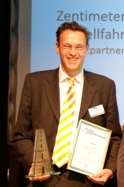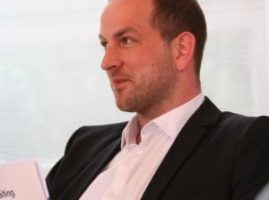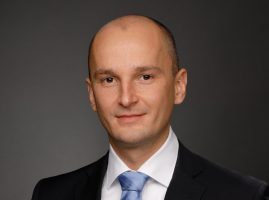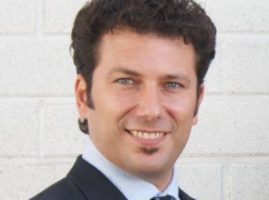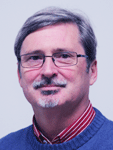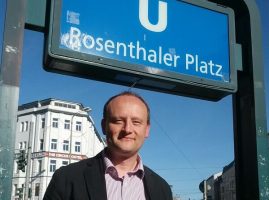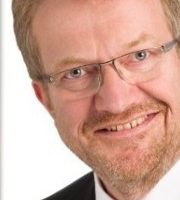
Hinrich Claussen
Robert Bosch Car Multimedia GmbH, Hildesheim
GDF Developer
Product Manager at Robert Bosch Car Multimedia
Business Unit Commercial Vehicle
Mentor at Universities Hanover and Hildesheim and at MentorMe Berlin
Coach at GISMA Business School in Hannover
More than 20 Publications on Digital Mapping, Topography, Hydrography
Some dates:
- 1959 April 16th born in Köhlen, now Geestland
- 1977 Graduation from High School in Bederkesa, now Geestland
- 1986 Diploma in Geodesy, University of Hannover
Assistant Teacher at Institute for Cartography University of Hannover - 1989 Robert Bosch GmbH, R&D – standardization
- From 1993 Helped to build up Product division Digital Map
- From 1997 Managed Product Development for Tele Atlas, now TomTom
- 2001 Proxy and National Management Board Tele Atlas Germany
- 2005 MBA from Purdue University, Indiana/USA and GISMA Business School
- From 2005 Business Development and Marketing at Blaupunkt,
now Robert Bosch Car Multi Media GmbH
Andreas Wichmann
Research and Teaching Assistant, Technische Universität Berlin
Andreas Wichmann is a research and teaching assistant at the Institute of Geodesy and Geoinformation Science of the Technische Universität Berlin. As a Ph.D. candidate he develops a fully-automatic building reconstruction approach using airborne LiDAR data. His research is conducted in close collaboration with the Department of Earth and Space Science and Engineering of the York University in Toronto, Canada. The main research interests of Andreas Wichmann focus on 3D scene understanding and modeling using point clouds. He received the Master of Science degree in Geoinformatics with distinction from the University of Osnabrück in 2013. The research of his Master thesis was concerned with augmented reality for real-time visualization of multitemporal geodata.
Dr. Thomas T. Burgess
Chief Research Officer (CRO), indoo.rs GmbH
Thomas Burgess studied physics at Stockholm University (Sweden), followed by a PhD in astro-particle physics exploring dark matter with the AMANDA/IceCube neutrino telescopes. At Bergen University (Norway) he continued as a PostDoc/researcher working on SUperSYmmetry, Higgs bosons and tau leptons with the ATLAS experiment at the Large Hadron Collider at CERN. In 2012, he joined indoo.rs (Vienna, Austria) as Chief Research Officer to initiate and lead research efforts in indoor positioning. Thomas specializes in machine learning, statistical analysis, and algorithm design applied to indoor navigation and location based services.
Till Krempel
Technischer Berater, Cologne Intelligence Mobile Minds GmbH
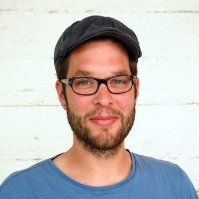
Timothy Ellersiek
HeiGIT , University of Heidelberg
Timothy Ellersiek is one of the core developers of Openrouteservice (ORS) – a free to use route planning service purely based on Openstreetmap data. ORS is developed by the Heidelberg Institute for Geoinformation Technology (HeiGIT) funded by the Klaus Tschira Stiftung. The API offers all different kinds of profiles and options providing the user with a highly customizable environment to plan routes all over the globe.
HeiGIT is directed by Prof. Alexander Zipf.
Heidelberg Institute for Geoinformation Technology
University of Heidelberg
Patrick Mast
Patrick Mast is project owner at Ubilabs. As part of a team of map geeks he works on bringing mapping solutions to the edge of technology.
Ever since he received is first handheld GPS receiver in the 90s he has been addicted to maps and geolocations: locating himself on the globe, visualizing data in a geographic context, gaining new insights by analyzing geographical data.
After studying Artificial Intelligence in Amsterdam he came back to Germany to first work in the marine business: locating vessels and analyzing their movement around the globe. At Ubilabs he now found his home between like minded people, focussing fully on mapping up the world.
Peter Bunus
CEO of CyStellar
Peter Bunus has 18 years of experience in conducting research activities with the ability to bring research ideas into production and development. Prior to co-founding CyStellar, he served as the Director of the Centre of Excellence at ESI-Group and as a Research Scientist at Palo Alto Research Center (former Xerox PARC) where he worked with several defence related projects in the framework of the Adaptive Vehicle Make (AVM) program, a portfolio of research programs overseen by Defense Advanced Research Projects Agency (DARPA). Peter was the Co-Founder of Mathcore Engineering (acquired by Wolfram Research), Co-Founder of Senion (indoor positioning and location-based services) and Founder at SystemicsCode (predictive analytics). Dr. Bunus also held an Associate Professor position in Computer Science at the Department of Computer and Information Science at Linköping University Sweden where he taught Computer Science and Software Engineering courses at graduate and undergraduate level and performed research in the area of model-driven engineering. Peter has a Ph.D. degree in Computer Science from Linköping University, Sweden.
Jens Heinrich
Co-Founder & CEO of NAiSE GmbH
Jens Heinrich is one of the co-founders of the high-tech startup NAiSE, which was founded as a German GmbH in March 2017. NAiSE develops systems for indoor navigation in the context of Industry 4.0, especially for autonomous intralogistics with AGVs.
Having been a founder of two different startups and a management consultant for high-tech enterprises beforehand, he has always been enthusiastic about turning new technologies into helpful innovations. As a studied business informatician he combines comprehension for both technical product development and scalable businesses in new markets. He found his passion for indoor navigation by meeting his co-founders of NAiSE and saw the vast potential that their solution offered. Together they developed the prototype, the business model and the use cases to make autonomous indoor navigation available for everyone.
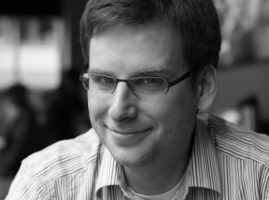
Richard Süselbeck
Principal Evangeliste, HERE Technologies
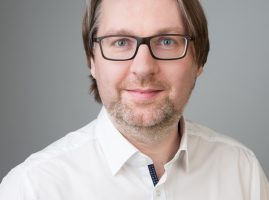
Sebastian Zickau
Researcher, Technical University of Berlin
Dipl.-Inform.
In 2002, Sebastian Zickau submitted his diploma thesis during a project at the IT-Service-Center of the Technische Universität Berlin (tubIT) where he worked as a student research assistant. The focus of the thesis was on e-mail encryption using smartcards. After he received his diploma, he continued to work at the tubIT Service Center as a research assistant. During this time, he contributed to several security, policy, and access control projects, such as TUBIT. In 2008, Mr. Zickau started to work at the University of Reading in England for two years. There he joined the EU-funded Hydra Middleware project (now LinkSmart middleware) in a research group at the School of Systems Engineering. My main focus was on security and policy aspects and context functionalities during the realization of the Hydra software along with work on project demonstrators and general research. In March 2012, Sebastian Zickau joined the Telekom Innovation Laboratories in Berlin, as a research scientist at Prof. Dr. Axel Küpper’s chair Service-centric Networking (SNET). He contributed to the BMWi- and BMBF-funded projects: TRESOR (Cloud Computing in the health sector), Curcuma (location-based access control) and the running PARADISE. His research in PARADISE focuses on ubiquitous computing, location-based access control, and privacy aspects within an anti-doping use case. He is currently writing his doctoral thesis about these topics.
Dr. Matthias Jöst
Dr. Matthias Joest, CEO Heidelberg Mobil GmbH
is working on mobile location based services and geo informatics since 1998. Initially he was working as researcher on pedestrian navigation at the European Media Laboratory GmbH and the University of Heidelberg. During that time, he co-developed the Deep Map technology that got later transferred to the spin-off called Heidelberg Mobil International GmbH. As one of the managing directors he is now responsible for the corporate strategy and development, but still loves to get involved in all spatial topics.
https://www.heidelberg-mobil.com/
Ludovic Privat
CEO CROWDLOC
Ludovic Privat is the CEO and co-founder of CROWDLOC, a French-German startup providing a B2B SaaS platform for affordable, low power location tracking. After a first career in Europe in Public Relations and marketing for consumer electronics and GPS companies (Navman, TomTom) he moved to the United States in 2006 where he launched the worldwide portal and Newsletter GPS Business News. Back in Europe in 2008 with GPS Business News, Ludovic founded in 2013 the ConnecteDriver conference. Since 2015 he is also the co-chair of the Geo IoT World conference. He advised a number of international startups in the field of connected cars & location-based services.
Andreas Dunsch
Co-Founder and CEO FlyNex GmbH
Andreas Dunsch startet working with drones around the globe during his military career, embedding different solutions for effect based results. He learned that drone operations are highly depend on the data provided and the functionality of processes installed. He worked as a scientific assistant in the field of unmanned air traffic and started his own company FlyNex looking for solutions to the problems he discovered during his research activities. He now runs one of Germanys most promising drone tech startups to help companies who have never been involved in aviation to use drones to scale their business operations. A key factor for success in integrating drone operations into daily business workflows highly depends on accurate mapping solutions for low altitude airspace. Developing these U-Space solutions for an entire industry is one of the mission he encounters.
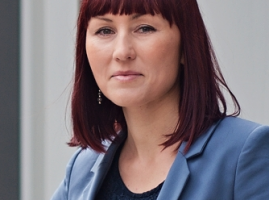
Justyna Redelkiewicz
EU GNSS Agency (GSA)
Justyna Redelkiewicz is responsible for promoting Galileo, the European Satellite Navigation System, and its use in context-aware mobile applications. After a few years of work with global chipset manufacturers, she was behind the first Galileo-enabled smartphone launched in 2016, using the European technology for location-based services. Justyna is also in charge of the market and technology research at European GNSS Agency (GSA), managing publications of annual reports on satellite navigation use in various industries. Justyna holds a Master Degree in International Business from Poznan University of Economics and MBA from Leipzig Graduate School of Management. Prior to joining the GSA, she held business management responsibilities in the telecommunication and IT industries.
DI Juan Carlos Carvajal Bermúdez
Phd Fellow
Sustainable Buildings and Cities
AIT Austrian Institute of Technology GmbH
Juan Carlos Carvajal Bermúdez PhD researcher at the Austrian Institute of Technology. His doctoral thesis focuses on decentralized models of creativity and tools for co-creation in cities. His master thesis focused on art in public spaces and the participation of communities in the development of their environments.
Since 2006 he began to explore the relation between architecture, digital media and urban space. He has developed projects that enable new forms of interaction; the participatory creation of patterns for digital facades; or enable urban communities to participate in the development of their cities. His projects has been exhibited at the Ars Electronica festival in Austria, the Media Architecture biennale in Denmark and the Media Architecture summit in Beijing. In Vienna he participated in the design and installation of a media facade for the display of video art and interactive installations. With the project “Cicloscopio” he won a Jury-award in the Velo-city cicling visionary awards 2013. He was selected as finalist for the Paseo project (Zaragoza) competitions of 2012 and 2013.
Michel Deriaz, PhD
Lab Director Travelling and Mobility R&D team, University of Geneva
After an engineer degree in telecommunications and a master in computer science, Michel Deriaz did a PhD in economical and social sciences. He spent then three years in the industry before coming back at University as R&D Project Manager. Among his main realizations there are FoxyTag, a worldwide speed camera warning system with thousands of users, and FoxyTour, a museum and city guide that adapts automatically to the preferences of its user.
Born the 17th of April 1976, married, 3 children, Michel has spent all his live in Geneva. He likes different kinds of sports including diving, skiing or hiking, and is member of some professional associations like the CREG (Centre de Rencontre des Entrepreneurs – Genève). He used to finance his studies by working as a trainer for private institutions as well as for the police where he taught cryptology and computer security.
Filip Lemic
TU Berlin, Telecommunication Networks Group of Berlin University of Technology
Filip Lemic is a research assistant and a PhD candidate at the Telecommunication Networks Group of Berlin University of Technology, Germany. He received the BSc and MSc degrees from University of Zagreb, Croatia. In 2015 and 2016, he was a visiting research assistant at Berkeley Wireless Research Center and Qualcomm Ubiquitous Swarm Lab of University of California at Berkeley, USA. His research interests include location and context aware wireless networks, the Internet of Things, and mmWave communication.
Prof. Dr.-Ing. Martin Kada
Technische Universität Berlin, Fakultät VI Planen Bauen Umwelt, Institute for Geodesy and Geoinformationstechnologies (IGG)
After his diploma in computer science, Martin Kada worked as an academic staff member in the GIS group of the Institute for Photogrammetry at the University of Stuttgart. There he received his doctoral degree in engineering on the topic of multi-scale generation of 3D city models. Three years later he was appointed junior professor for geoinformatics at the University of Osnabrück. Since 2015 he holds a full professorship at Technische Universität Berlin and is head of the chair “Methods of Geoinformation Science”. His research interests include 3D urban environments, particularly their automatic generation from 3D point clouds and their (real-time) visualization.
Evgeny Karpov
Founder and Software Engineering at kMaps LLC
Focuses on Navigation, Maps, Rendering and Search. Creator of kMaps application. Directs business strategies and development processes. Software engineer with extensive background in C++ and Multi-platform Development.
Martin Hammitzsch
Helmholtz Centre Potsdam – GFZ German Research Centre for Geosciences
CeGIT Centre for GeoInformation Technology
Currently, I am responsible for the integrated data management of a novel observing system in the research field ‘Earth and Environment’. It comprises flexible and mobile observation modules which are specifically designed to investigate the interactions of short-term events and long-term trends across Earth compartments.
Furthermore, I am involved in developing concepts to strengthen the recognition and acknowledgement of scientific software and to moor software engineering practices in research. In parallel, I transfer research results towards an operational system for early warning purposes in the field of natural hazards, in particular tsunamis. Before that, I was involved for nearly six years with the implementation of tsunami early warning systems in the Indian Ocean region and the NE Atlantic and Mediterranean Sea region in two successive research projects.
Ahead of my research activities I have been active for more than eight years in the field of dynamic Web application development in full time and during my studies. In my education, more than fifteen years ago, I established a Web based communication and training platform for an education branch of a global technology company.
Matthias Hinz
Research Fellow,
Professorship for Geoinformatics and Geodesy,
Faculty of Agricultural and Environmental Sciences,
University of Rostock
Matthias Hinz is a research fellow at the University of Rostock. He works for the project ‘OpenGeoEdu’ (Open Data for Education and Science) and aims for a doctoral degree. In September 2016, he graduated with a Master of Science in Geoinformatics from the University of Münster. His thesis investigated capturing meaning and purpose of spatio-temporal data analyses and included a prototypical R-extension that generates provenance and semantic metadata while geostatistical computations are carried out. As a student, he worked part-time at the Institute for Geoinformatics of the University of Münster and the 52° North Initiative for Geospatial Open Source Software GmbH, spent ten months in Spain at the Geospatial Research Group (GEOTEC) of the University Jaume I, and joined the European Geography Association (EGEA) for students and young geographers.
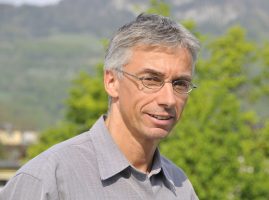
Dr. Denis Giffeler
Born in 1966, raised in Bavaria. Study of mathematics and computer science followed by a doctorate. Former researcher of the Gesellschaft für Mathematik und Datenverarbeitung, today Fraunhofer Gesellschaft in Bonn. Spin-off of gekko mbH in 1994 with a focus on multimedia publishing processes. Founding of further companies in the field of online marketing. First projects in connection with GIS in the year 1996 together with the media artist Hermann Josef Hack (http://ejje.weblio.jp/content/Hermann+Josef+Hack), here among other things the »virtual roof / Virtual Roof« over Cologne. As a former middle-distance runner, his commitment to competitive sports in 2015, together with Olympian Jonas Plass, led to the founding of genia mbH. In this context, the PARADISE project for the use of anti-doping in sport was launched in 2016 together with other research institutions and SMEs.
Dr. Thomas Bartoschek
Institute for Geoinformatics, University of Münster
Thomas is a post-doctoral researcher at the Institute for Geoinformatics (ifgi), University of Münster (WWU), where he is head of the GI@School lab. He holds a PhD and a diploma in geoinformatics and currently works at the spatial intelligence lab (SIL) where he leads the senseBox project. His research interests are learning with geospatial technologies, citizen science and VGI. Thomas was a member of the semantic interoperability lab (MUSIL) at ifgi and worked for the Vespucci Initiative in the organization of the Vespucci Institutes for the Advancement of Geographic Information in Science. In 2013 he became a Vespucci fellow. His research, work and projects were awarded with several prizes, most recently with the CeBIT Innovation Award 2017 and the ACM Eugene Lawler Award 2013.
Ivan Azcarate
Ivan Azcarate is a student research assistant at the Telecommunication Networks Group of the Berlin University of Technology.
He is currently pursuing his master’s degree in electrical engineering at the Berlin University of Technology, where he also did his bachelor studies.
His research is in the area of indoor localization. He will give a talk on behalf of Filip Lemic.
Julia Lebert
Julia Lebert studied Geoinformation at the Beuth University of Applied Sciences Berlin.
She is working as a project manager at Mentz since two years. She has a lot of experience in OpenStreetMap and especially with Indoor Navigation in rail stations.
Mentz GmbH
Dr.-Ing. Johannes Ludwig
Owner of eagle eye technologies GmbH
Academic studies/ professional development
- A level Examination (Abitur) in Soest (1990)
- Studies of Geodesy and political economics Bonn (1995)
- Doctorate. at theoretical Geodesy Bonn, Dr.-Ing. (1999)
- Traineeship NRW, Vermessungsassessor (2001)
current area of projects
- Aerial imagery with our own aeroplane
- 3D mobile mapping with images and laser scan
André Heinrich
Teamleader Digital Maps, IAV GmbH Ingenieurgesellschaft Auto und Verkehr
André Heinrich is a project manager and moreover the leader of the Digital Maps Team at IAV GmbH. After a master in Geoinformation he started his career in the automotive industry. Since then he managed various map database development projects and research projects related to map quality and maps for autonomous driving.
Tinosch Ganjineh
Product Unit “Autonomos” , TomTom
Tinosch Ganjineh is the CEO of Autonomos GmbH – a Berlin based high-tech startup specialising in the areas of automotive software, digital image processing and 3D sensor technology. In early 2017 TomTom acquired Autonomos to strengthen its position in the autonomous driving market, since then Autonomos is run as a Research Unit within TomTom lead by Tinosch Ganjineh.
Prior to founding the Autonomos GmbH he worked as a research assistant and lecturer at the Freie Universität Berlin where he conducted general research in the field of mobile robotics and artificial intelligence. After participating in the DARPA Urban GC in 2007 he created the Autonomos Labs – a research project around autonomous cars funded by the Federal Ministry of Education and Research (BMBF). Since 2011 Autonomos is testing the highly automated cars on public roads in Berlin and other countries around the world. His current research interests in the field of highly automated cars include HD-maps, localisation & mapping -techniques and technical challenges for SAE L5-systems.
Prof. Dr. Peter Mandl
Prof. Dr. Peter Mandl studied “Geography and Economy” as well as “Mathematics” (teacher for higher schools) at the University of Klagenfurt and made his PhD in Geography also there. Since 1993 he is Assistant Professor at the Department of Geography and Regional Studies at the Alpen-Adria-University in Klagenfurt. He was guest-professor for “Geographical Information Systems and Remote Sensing” at the Geographical Department, University Bonn, Germany and for “Geoinformatics” at the Department for Geoinformatics, University of Münster, Germany. Since 2002 he is one of the speakers of the working circle “Theory and Quantitative Methods in Geography” of the German Society for Geography.
Prof. Dr. Roland Wagner
President of the Association for Geoinformatics, GeoIT and Navigation e.V.
